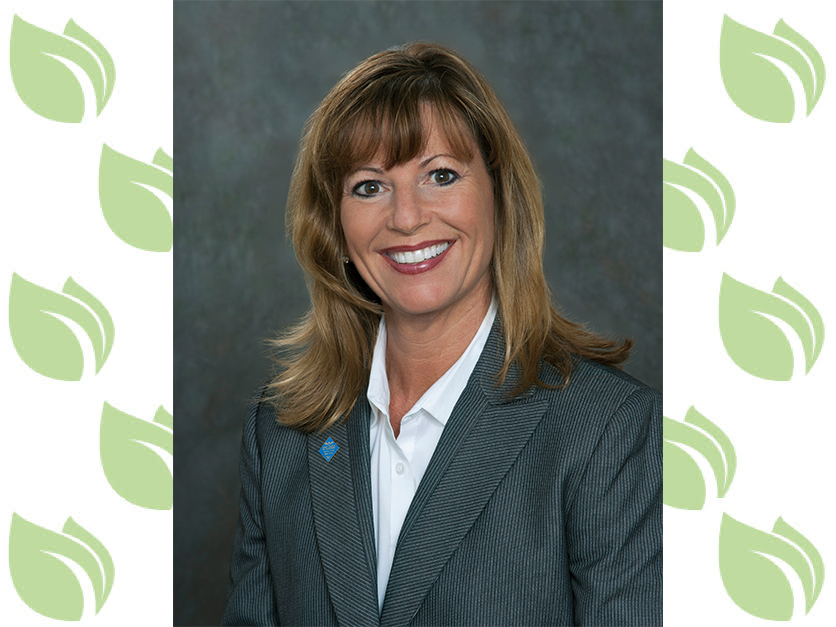It wasn’t all that long ago that millennials were dominating headlines and conversations as industries, businesses and organizations grappled with how to evolve to meet the needs of this younger demographic. Today, there is another dominating force shaping our collective future in transformative ways—Generation Z.
Members of Gen Z, born between the mid-1990s and around 2010, are food and health-minded mobilizers, advocates for social change and influencers whose purchasing power is values-driven. And while each generation is unique, the influence wielded by Gen Z demands those of us connected to food and agriculture rethink how food is grown and produced, as well as how we engage with younger generations to promote agricultural literacy and nutrition education. Doing so yields opportunities to harness the power and influence of Gen Z in positive ways.
Driven by Climate Change
Gen Zers understand the interconnectedness of what they eat and their overall health and wellness. They want to know where their food comes from and what impact their personal food choices will have on the world.
Research by EIT Food found that young people think the global food system is in crisis and only getting worse, with two-thirds believing the current food system is destroying the planet. While this research paints a picture of an uphill battle, there is opportunity to build upon the curiosity of young people to connect with them on shared values and demonstrate progress on climate change. At the same time, the food and agriculture community would benefit from supporting a more holistic view of sustainability rather than focusing only on environmental factors.
Health experts, advocates, policymakers and consumers are increasingly talking about sustainable nutrition, which is a way to support the health of people through nutrition while also protecting planetary health. In fact, the Food and Agriculture Organization of the United Nations (FAO) and the World Health Organization (WHO) already use this broader lens to talk about sustainable healthy diets.
“Sustainable healthy diets are dietary patterns that promote all dimensions of individuals’ health and well-being; have low environmental pressure and impact; are accessible, affordable, safe and equitable; and are culturally acceptable,” according to FAO and WHO.
With this view in mind, farmers and ranchers should talk not only about their progress on improving environmental sustainability and limiting climate change but also about their positive impact on communities and how their food products fit within the lens of sustainable nutrition. In the case of the dairy community, there is a strong story to tell around continual improvements in environmental stewardship and the unique package of essential nutrients in dairy foods that work together to provide multiple benefits.
Digitally Connected
Gen Z is more connected than any previous generation and is often cited as the first generation of true digital natives, meaning they are growing up in the era of digital media and technology. They order takeout via their phones, get medical checkups via telehealth, send money via WhatsApp and frequently FaceTime friends and family. They have also moved well beyond e-commerce and into social commerce, buying products on social media sites. While the pandemic played a large role in accelerating the expansion of the digital space, Gen Zers will continue to lead the way into a digitally connected future. As they do, the ways in which food and agriculture engage with young people will also need to evolve to include technology.
Nutrition education has been the backbone of Dairy Council of California for more than a century. What started as print-based classroom curriculum and live Mobile Dairy Classroom assemblies in schools has evolved to include a robust portfolio of online resources, including videos, games, virtual farm tours and more, to teach about agricultural literacy and how to eat healthfully. Several online gaming activities engaging Gen Z have also been released by dairy industry partners to teach about dairy nutrition, farming and environmental sustainability. These types of innovative approaches to agricultural literacy are needed more than ever, as many young people—especially those in urban areas—are less connected with farms and how food is grown than previous generations.
Diverse and Impactful
Gen Z is now the largest and most ethnically diverse demographic group in the United States. According to the Brookings Institution, only half of Gen Z and younger identify as white alone, compared to 70% of baby boomers. In addition, nearly two-fifths of Gen Z and younger identify as “Black or brown.”
“These generational differences are important for public and private sector planning, especially with respect to the needs of the increasingly diverse younger population,” wrote Senior Fellow William H. Frey in a Brookings report. “The generational divide in diversity also fosters what I have called ‘cultural generation gap’ … it is important to understand that as these younger, diverse generations age, their tastes, values, and political orientations will become the nation’s ‘mainstream.’”
As agriculture continues its efforts to reach and engage young people, diversity must be prioritized, along with other conditions in the places where people live, learn, work, play and gather. These factors affect not only individuals’ worldviews but also a range of health and quality-of-life risks and outcomes.
The oldest of Gen Z have entered early adulthood with purchasing power and influence. They may already be forming families of their own, and their behaviors, viewpoints and values will begin to influence a new generation. Connecting with Generation Z and embracing generational shifts will be critical. It is worthwhile for everyone in food and agriculture to consider how they can innovate their work and communication strategies to advance agricultural literacy and nutrition education and build long-lasting relationships with coming generations. The result could mean greater shared understanding and elevated health for young people and communities.
Tammy Anderson-Wise is the CEO of the Dairy Council of California.
For more opinions and ag news, visit www.Agri-Pulse.com.
